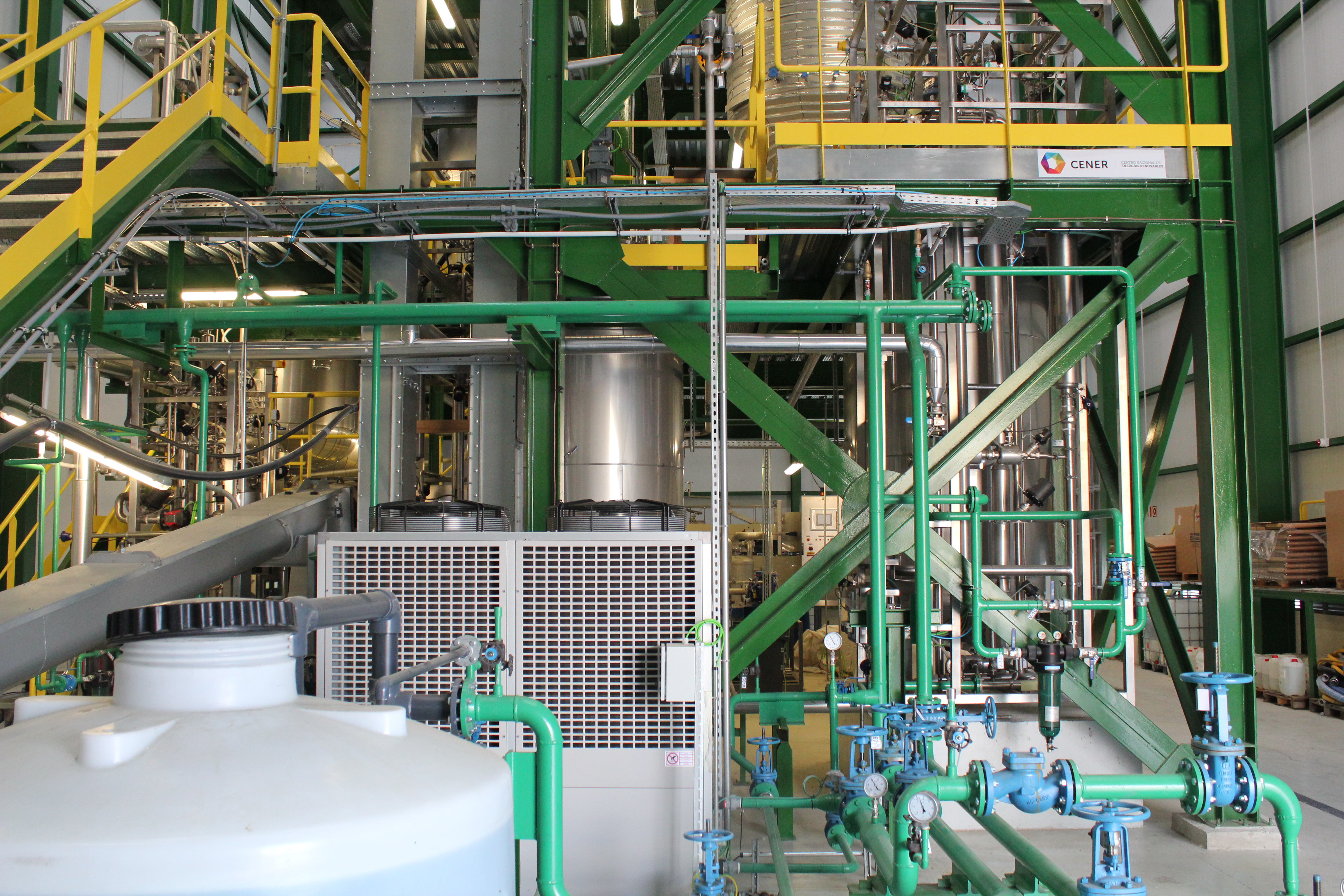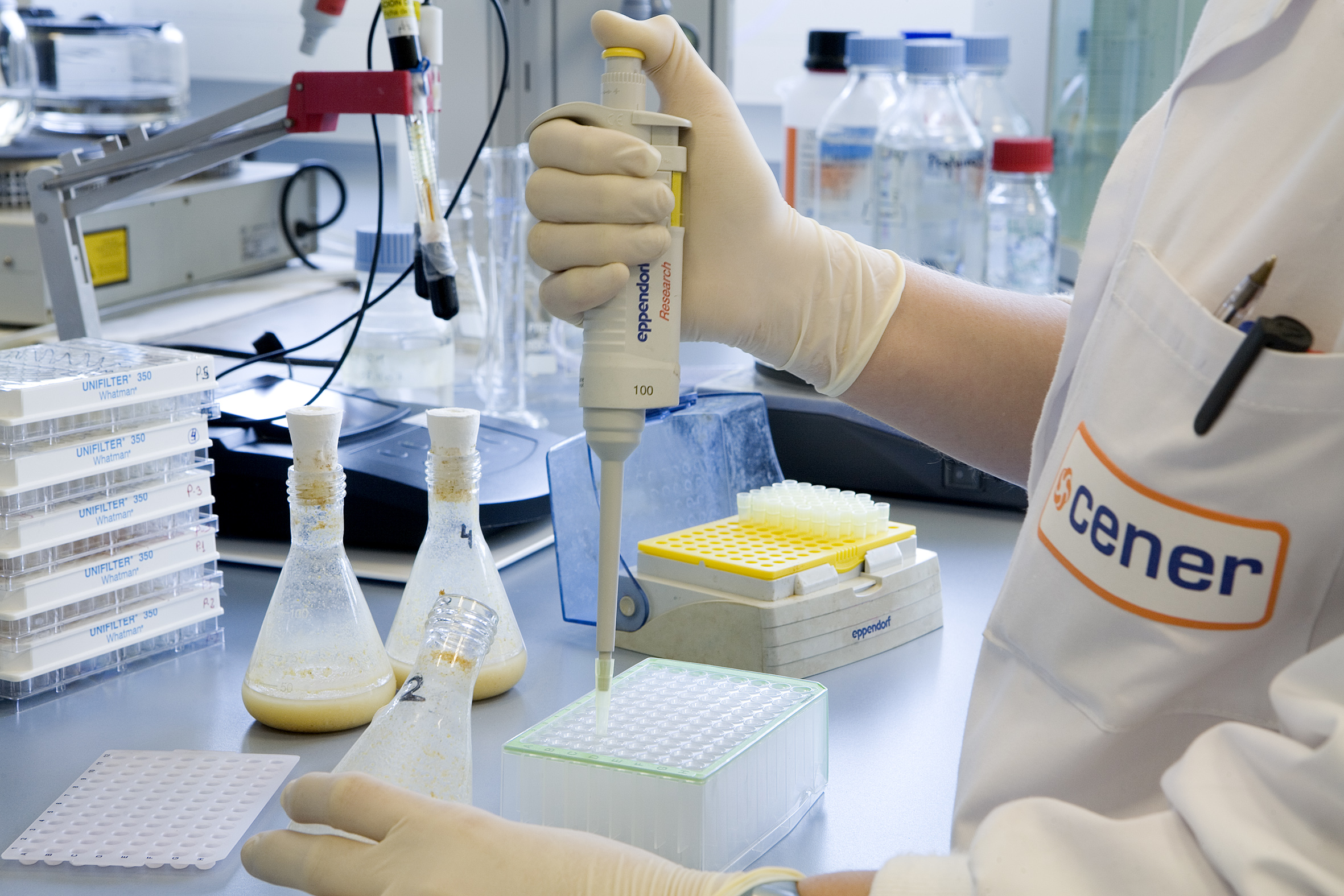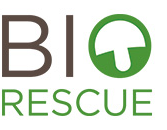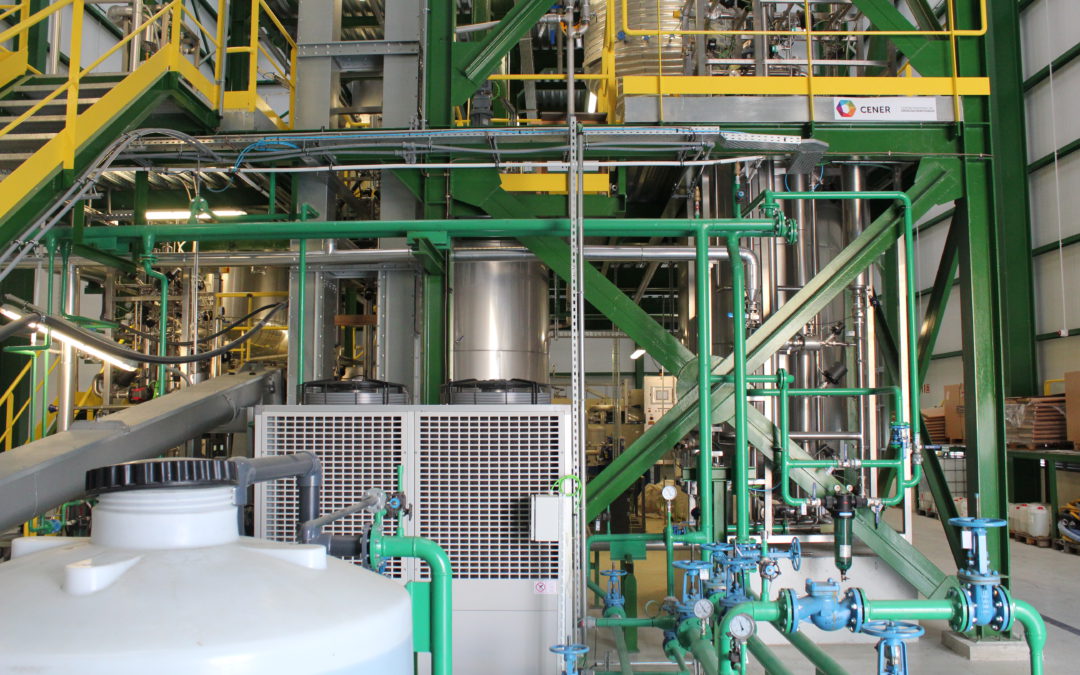Fostering knowledge transfer for a more circular economy: CENER’s role explained
 Spain’s National Renewable Energy Centre is a key player in the deployment of innovative circular economy concepts in Europe. Within their fully equipped laboratory and state-of-the-art research infrastructure dedicated to biofuels and bioproducts, CENER Biomass Energy Department experts are working hard to unlock the potential of the European bioeconomy. Since its creation by Spanish public authorities in 2002, the centre has always been working on a wide variety of bioeconomy projects. As a foundation, CENER was created to boost the competitivity of the renewable energy sector and help innovative businesses in developing and validating new technologies and processes. To this end, CENER’s Biorefinery Demonstration Plant is made available to new bio-based start-up companies and researchers looking to test new biorefinery processes at a large scale or interested in obtaining big amounts of biomaterials.
Spain’s National Renewable Energy Centre is a key player in the deployment of innovative circular economy concepts in Europe. Within their fully equipped laboratory and state-of-the-art research infrastructure dedicated to biofuels and bioproducts, CENER Biomass Energy Department experts are working hard to unlock the potential of the European bioeconomy. Since its creation by Spanish public authorities in 2002, the centre has always been working on a wide variety of bioeconomy projects. As a foundation, CENER was created to boost the competitivity of the renewable energy sector and help innovative businesses in developing and validating new technologies and processes. To this end, CENER’s Biorefinery Demonstration Plant is made available to new bio-based start-up companies and researchers looking to test new biorefinery processes at a large scale or interested in obtaining big amounts of biomaterials.
In search of new opportunities for collaboration in the bioeconomy sector, CENER decided to join the Bio-based Industries Consortium as an associate member during its early days in 2013. In the rapidly growing bioeconomy sector, CENER considers international cooperation as key to accelerate the implementation of innovative concepts for the production of bio-based products and energy from biomass and waste. “At CENER, we see the development of biorefineries as crucial to promote sustainable growth and energy diversification in European local communities”, says Inés del Campo, Senior Research and Development Engineer at CENER’s Biomass Energy Department.
The objective of the European Commission is to open 300 new biorefineries in Europe by 2020 to support the development of a circular economy contributing to environmental and social welfare. To help achieving this objective, the BIOrescue project will develop a new biorefinery concept to transform mushroom compost into innovative bio-based products. As project coordinator, CENER will make available its Biorefinery Demonstration plant, also known as the Second Generation Biofuels Centre (CB2G) to test and validate the new concept. This state-of-the-art infrastructure includes several Process Development Units focused on biomass pre-treatment, torrefaction, gasification and biochemical conversion. The different units can be used to test, among other things, a wide variety of lignocellulosic biomass feedstocks and organic fractions of municipal solid waste for whole conversion processes with flexible configurations and scaling-up possibilities from pilot to semi-industrial.
 Within BIOrescue, this infrastructure will be used for the separation and fractionation of mushroom compost. As part of the new concept, CENER will develop a two-step fractionation process for mixtures of mushroom compost and wheat straw or other underutilised feedstocks. These mixtures will be separated into three valuable fractions, to be further used by other partners at a later stage in the process. Additionally, CENER experts will work on the biochemical conversion of the sugars obtained from the processed feedstocks, based on the experience gathered in a regional project funded by the Navarra Governement, BIOPEST. The conversion will be made through a fermentation process using bacteria to create biopesticide. As sustainability is not only to be applied to products but also to processes in the circular economy, the environmental impact of the newly created biorefinery concept will be evaluated through a Life Cycle Assessment methodology. All together, CENER and BIOrescue project partners’ efforts will contribute to the deployment of new biorefineries in the traditional agroindustry in Europe and support the transition towards more sustainable and integrated production processes.
Within BIOrescue, this infrastructure will be used for the separation and fractionation of mushroom compost. As part of the new concept, CENER will develop a two-step fractionation process for mixtures of mushroom compost and wheat straw or other underutilised feedstocks. These mixtures will be separated into three valuable fractions, to be further used by other partners at a later stage in the process. Additionally, CENER experts will work on the biochemical conversion of the sugars obtained from the processed feedstocks, based on the experience gathered in a regional project funded by the Navarra Governement, BIOPEST. The conversion will be made through a fermentation process using bacteria to create biopesticide. As sustainability is not only to be applied to products but also to processes in the circular economy, the environmental impact of the newly created biorefinery concept will be evaluated through a Life Cycle Assessment methodology. All together, CENER and BIOrescue project partners’ efforts will contribute to the deployment of new biorefineries in the traditional agroindustry in Europe and support the transition towards more sustainable and integrated production processes.
For more information, please visit the BIOrescue website at www.biorescue.eu. More details on CENER’s Second Generation Biofuels Centre are also available here.
Press and media enquiries can be directed to benedicte.julliard@greenovate.eu +32 (0)2 00 10 07.


Recent Comments